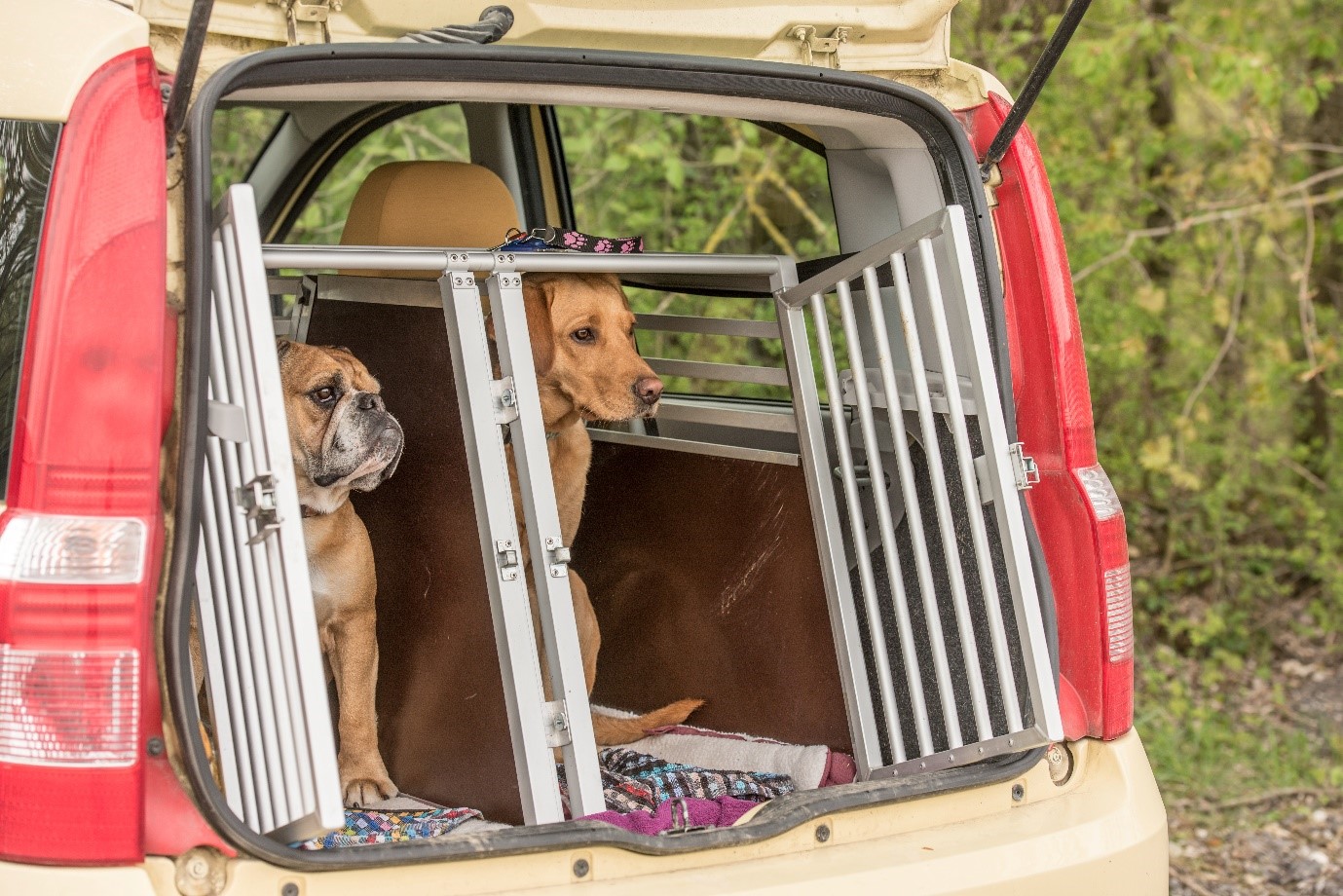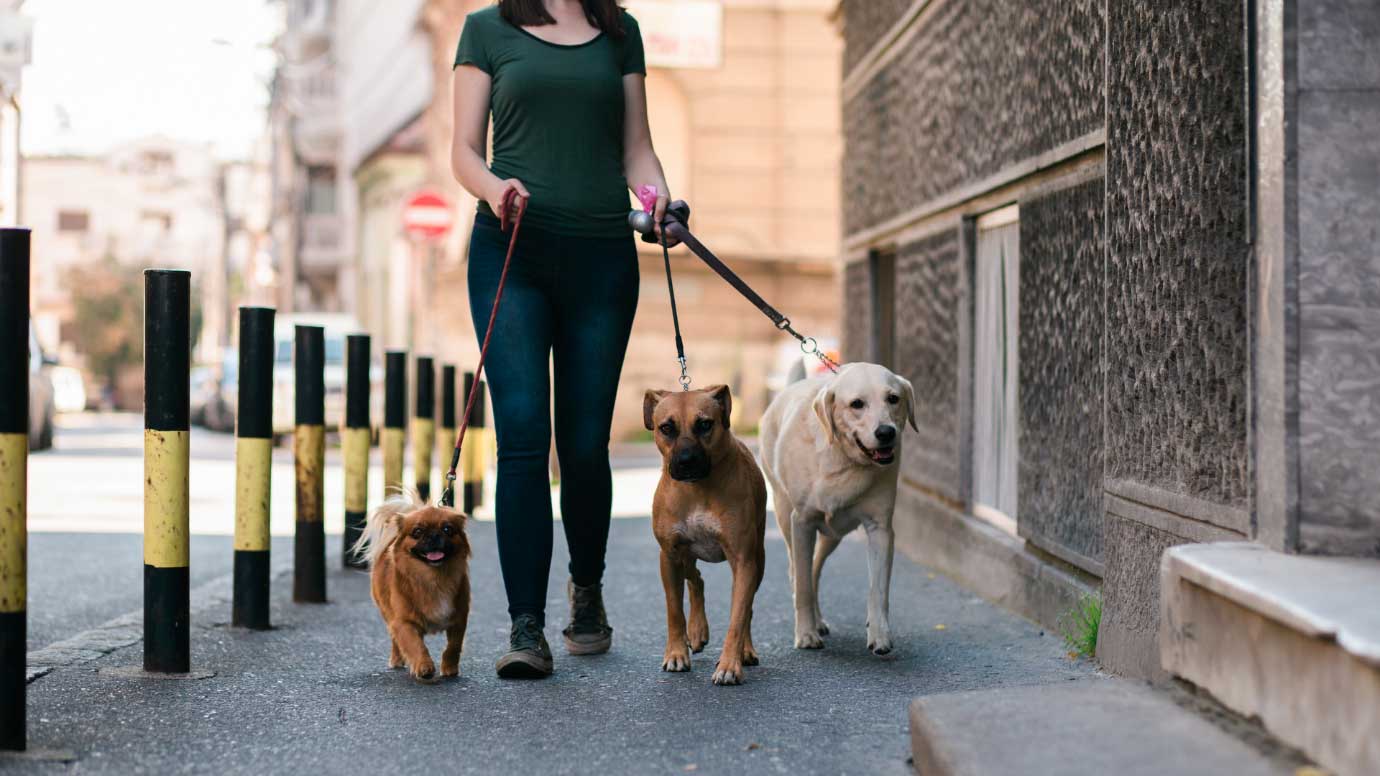People who love the outdoors and have a passion for dogs may have, at some point, considered dog walking as a professional career. This can occur more often at times of the year like Walk Your Dog Month, which takes place every January.
There are many ways to get started as a Dog Walker. It’s recommended that you start slow, trying it out as a small helpful service before you take the deep dive. After all, you may realise that you are not quite suited to dog walking in the wind, rain, and snow.
Do Dogs Need Walking Every Day?
All healthy dogs need to be walked every, single day. Some high-energy dogs need frequent daily exercise and can even require 2-4 walks a day.
Dogs need to be walked regularly to sustain a healthy lifestyle. This human-to-dog interaction each day is something dogs look forward to.
Dogs also benefit from a regular, scheduled routine. Dog Walkers often are greeted by an excitable, wagging-tailed dog during their special time of day. ‘Walkies’ contributes to several positive benefits to a dog’s physical, mental and emotional health.

Is Dog Walking Good for Dogs?
Absolutely! Walking maintains a dog’s physical health by keeping its joints and muscles moving. It helps keeps their weight controlled and can support a healthy digestive system, especially if they are prone to overeating and gorging on scraps.
A dog’s mental well-being is greatly impacted by outdoor activities. Walking outdoors provides them with space to investigate sights, scents, and sounds. Dogs are naturally curious animals and benefit greatly from activities that wake their senses.
Dogs also love interacting with other animals, and in particular, other dogs. Canine socialisation is crucial for a dog’s cognitive and behavioural development as they learn from other dogs’ behaviour. Exposure to well-behaved dogs regularly will help them feel confident and happy.

How to Gain Experience in Dog Walking
Dog walkers often start up small by walking their neighbour’s dogs and helping with family pet pooches. This is a sensible approach because you need to be able to decide if you are a good fit for the dog walking profession.
With the right know-how, you can create a small animal business that generates a lucrative income. If you are embarking on a new career in dog walking then you may want to consider some of the fundamentals and best practices for canine care and dog behaviour.
For example, dog walking needs to be taken seriously. You could be eligible for accidents when the dog is under your care.
Questions You Should Ask Before Considering Dog Walking as a Profession
If you're seriously thinking about becoming a Dog Walker, ask yourself these questions first:- Are you fit, healthy and strong?
- Are you able to walk independently for several hours?
- Do you live near dog-friendly parks and good walking spots?

How Much Do Dog Walkers Make Per Month?
The average cost of a dog walk in the UK is between £10-£24 per hour, per dog. This can vary if the dog has specific needs or requirements, for example, long-haired dogs that love the mud may need an additional groom after walkies which may contribute to additional time to your dog walking services.
Your skill set and experience will often dictate how much you can charge for your services as a professional Dog Walker. For example, a highly trained Canine Behaviourist or Dog Walker with regulated qualifications will be able to charge more than those who do not have training or experience.
In the UK, professional dog walkers can earn above the average wage of around £26,500 per annum. This is based on a Dog Walker who is actively walking around 13 dogs per day between Monday to Friday.
Do I Need to Train to Become a Dog Walker?
The short answer is no. You do not need official training to become a Dog Walker in the UK. However, if you are dog sitting or taking care of a dog within your own home or business then you will need to obtain a Level 2 or a Level 3 qualification to meet the Defra Animal Activity Licensing requirements.
Owners tend to prefer a fully trained Dog Walker who can demonstrate their knowledge of dogs. So it’s preferred and recommended that you become qualified in canine behaviour, dog sitting or canine care before starting a career. This will also help you stand out against other dog walkers in your area.

The Level 3 Award in Dog Walking and Pet Sitting for Professionals is an Ofqual regulated qualification and a great starting point for those who want to operate a dog-walking or pet-sitting business. There is no entry requirement to study this course, but you must be over the age of 16.
The two compulsory units in this course cover a range of essentials for dog care and welfare.
You will learn the on this course following:
- Roles and responsibilities as a professional dog walker and pet sitter
- Understand the policies and procedures and legislation involved
- Discover client requirements within dog walking and pet sitting services
- Learn the health and safety requirements and how to minimize risks
- Study the codes of practice for transporting animals in a vehicle
- Discover dog breeds and behaviours
- Learn about canine care and welfare
- Study dog behaviour and how to observe and react to different cues
- Learn how to take care of other small animals for a pet-sitting business
- Understand how to plan and operate a small animal business
Also, if you adore animals, you can keep track of all upcoming animal awareness days and events with our FREE calendar! Download it here.

















